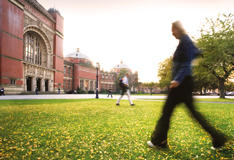
New till receipt design could make us healthier, say academics
The system shows the total data for calories, sugar, fat and salt in a person’s shopping basket and highlights the total in a green, amber or red colour to help people make healthier choices about their food.
It would allow people to see instantly if their regular food shops are too high in certain elements, meaning they can tailor future shopping trips to reduce potentially harmful intakes.
Current front-of-pack (FOP) traffic light labelling in the UK provides nutritional information on a product by product basis. The new concept aims to evaluate the nutritional content of a consumer’s entire supermarket trolley, providing consumers with a more accurate overall picture of the healthiness of their purchases.
Research into the project shows that more than 83 per cent of people currently use traffic light information in the UK to assist them in making their food purchases, and more than half said they would like to see the total data displayed on their shopping receipts.
In the US more than two thirds of adults and a third of children are either obese or overweight, and by 2025, 43 per cent of women and 45 per cent men are expected to be obese.
Lead researcher, Matthew Cole, Senior Lecturer in Sport and Exercise Nutrition at Birmingham City University, said: “Current evidence suggests that whilst consumers generally find the traffic light nutrition labelling useful, there are limitations, particularly when considering a person’s overall nutritional intake. A new receipt-based system could bridge this gap, and provide an additional tool to help aid consumers in their food purchases, providing an overall summary of their entire food purchases.”
Cole is working alongside London based creative designer Hayden Peek, who came up with the till receipt concept. Initial research carried out looked at the extent to which consumers use the current system to make their food choices and whether an alternative receipt-based summary may be a more useful tool. Over 50 per cent of those who took part in the survey stated that a receipt based system would add additional value and help aid their purchasing decisions.
Research also revealed that the majority of respondents considered health to be the most important factor when making food choices, suggesting the receipt could play an important role in changing people’s shopping habits.
Over 42 per cent of people said health was their key consideration while only 23 per cent cited cost, despite most previous research highlighting this as the main influencer.
It is hoped that the new concept could also be incorporated into supermarket self-scanning devices which could track the nutritional value of a shop as consumers go, and offering up alternative ‘healthier’ products.
Support Our Journalism
We cannot do without you.. your contribution supports unbiased journalism
IBNS is not driven by any ism- not wokeism, not racism, not skewed secularism, not hyper right-wing or left liberal ideals, nor by any hardline religious beliefs or hyper nationalism. We want to serve you good old objective news, as they are. We do not judge or preach. We let people decide for themselves. We only try to present factual and well-sourced news.







